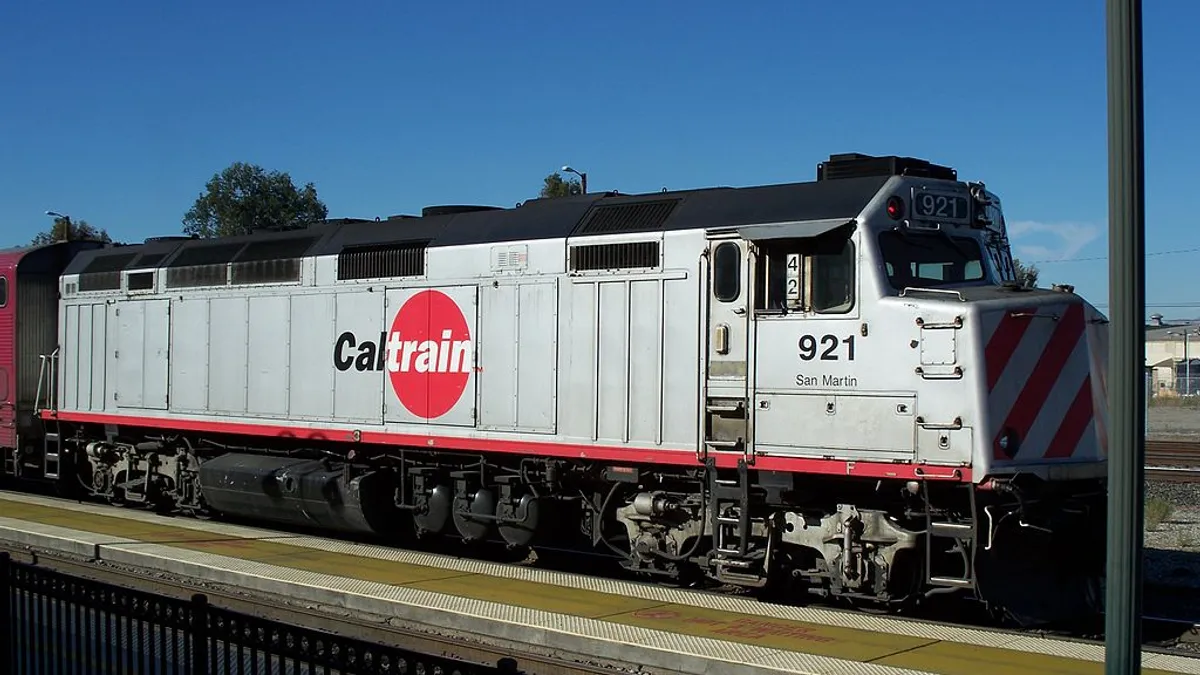Dive Brief:
- Construction firm Balfour Beatty has been awarded a $697 million contract to electrify the 52-mile Caltrain Peninsula Corridor railway, which connects San Francisco and Silicon Valley, according to The Telegraph.
- Balfour Beatty's scope of work is part of the $1.25 billion Peninsula Corridor Electrification Project (PCEP), which Caltrain said will help to meet increased ridership demand — often at 125% of capacity — as well as prepare the system for the operation of the California High Speed Rail Authority's (CHSRA) bullet train.
- The Caltrain system has a daily ridership of approximately 65,000, but the PCEP will increase that number to 110,000, according to Caltrain. The rail will continue with its normal schedule until the PCEP is complete in 2020.
Dive Insight:
The PCEP marks Balfour Beatty's largest undertaking in the U.S. and, according to The Financial Times, should help the contractor overcome recent losses in its UK segment, reportedly due to low bids and mismanagement. Balfour Beatty CEO Leo Quinn said in a press release that the company 's experience with "complex rail projects" leaves it positioned for a successful delivery of the Caltrain upgrade and will help it build its design-build rail market business in the U.S.
Caltrain said all contracts for the PCEP contain a "limited notice to proceed" and that a full notice to proceed will be issued as soon as the agency finalizes its funding agreement with the Federal Transit Authority.
The Caltrain PCEP may be the first tangible progress toward a high-speed rail system, given that the CHSRA continues to experience delays and cost overruns on the project. The Authority's plans for a bullet train from Southern California to Northern came under increased scrutiny after The Los Angeles Times published the results of its investigation into the system's operations and financing. The Times story implied that Authority officials weren't 100% honest with state lawmakers during the rail's approval process and was the impetus for a string of subsequent investigations and legislative hearings.
As part of its need to reduce schedule time and costs, the Authority eventually decided to forego its plans for an initial route originating from Southern California and concentrate its efforts on Northern California instead. Subsequently, the Authority revealed that it would add almost $63 million to general contractor Tutor Perini's contract for delay-related costs going back to 2013.













